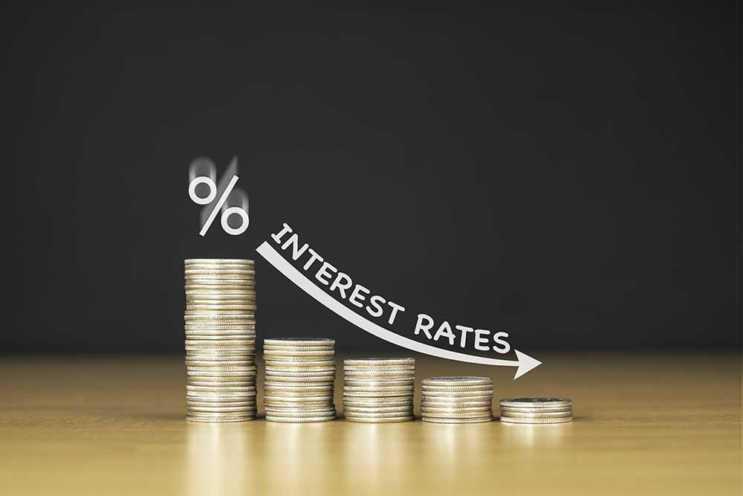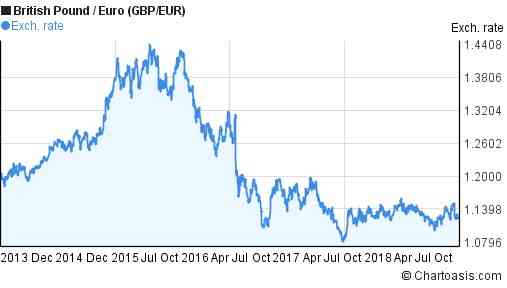If you are buying that house abroad – chalet in France maybe? Beach house in Spain possibly? Typically, currency exchange is left until last. By then, the rates have moved against you and that £200,000 pounds will only get you 280,000 euros, not 300,000 euros and soon enough the sale and with it, the dream falls through. Understanding what affects the rates before you move to get the best achievable rate at the right time is critical to maximising your hard-earned cash.

Inflation rates
Changes in market inflation cause changes in currency exchange rates. A country with a lower inflation rate than another country will see an appreciation in the value of its currency. The prices of goods and services increase at a slower rate where the inflation is low. As a rule, if a country consistently maintains lower inflation rates will experience a rise in currency value where a country with high inflation experiences the opposite.
Interest rates

Changes in interest rate affect currency value and dollar exchange rate. It’s boring but it’s a fact that currency rates, interest rates, and inflation are all correlated. Increases in interest rates, which is coming globally, cause a country’s currency to appreciate because higher interest rates provide higher rates to lenders, thereby attracting more foreign capital, which causes a rise in the exchange rate. U.k, US and other strong European nations all have plans to incremental increase interest rates as the days of cheap money seem to be ending.
Trade balance
In business terms, it’s like a very simple Profit and loss account. A country’s “basic” finances reflect the balance of trade and earnings on foreign investment. It consists of a total number of transactions including its exports, imports, debt, etc. A deficit over the year due to spending more of its currency on importing products than it brings in through a sale of exports causes depreciation. The balance of payments fluctuates exchange rate of its home currency. With a poor exchange rate for a home currency, exporters benefit more as their goods and services become more attractive as the lower rate makes them more competitive for foreign buyers. The inverse happens with a strong currency benefiting importers
Terms of trade
Related to the above is the terms of trade. It is the ratio of export prices to import prices. A country’s terms of trade improve if its exports prices rise at a greater rate than its imports prices. In simple terms it leads to higher revenue entering a nation, which causes a higher demand for the country’s currency, eventually increasing its strength. Hence why healthy and diverse producers, tech innovators, large manufacturers and diversified, efficient suppliers generally have the strongest economies as they don’t have to buy in the resource.
Government debt
Government debt is large in most developed nations. In the USA it has just risen above 20 trillion. It is defined as public debt or national debt owned by the central government. A country with government debt is less likely to acquire foreign capital, leading to inflation. The result is foreign investors will sell their bonds in the open market if the market predicts government debt within a certain country. If interest rates rise too, the cost of repaying that debt will be larger making it more expensive to service. A decrease in the value of the exchange rate will then likely occur. Countries like South Africa, Italy and Greece have seen negative financial symptoms from this issue
Political stability & performance
A country’s political state and economic performance can affect its currency strength. The UK and Brexit and all the uncertainty over the 2-year period is a classic example. A country with less risk for political turmoil is more attractive to foreign investors. One country that is always perceived as a safe haven, for this reason, is Switzerland and the Swiss Franc. Traders will move money away from an unstable nation. This week the riots in Paris, France have caused French indexes and major French stock to be rocked. Also, a country with sound financial and trade policy does not give any room for uncertainty in the value of its currency yet an uncertain one will experience depreciation. The graph below shows pound/euro for the last 5 years:
Recession
A recession is defined as two consistent quarters without growth. After a 10-year bull run, so-called experts are predicting a recession as soon as 2019 but conservative predictions say it could be as late as 2022.When a country experiences a recession, its interest rates are likely to fall and with it decreases its likelihood to acquire foreign capital. In general, attractiveness across all financial metrics is reduced and the currency gets sold and depreciates.
Speculation, rumour and innuendo
A lot of movements in the financial market are confidence and sentiment based. On from that, rumour and expectation are a pretty big driver too. If a country’s currency value is expected to rise based on an event or data release, investors will demand more of that currency in order to make a profit in the near future. The simple supply and demand model will dictate the currency will rise accordingly. If murmurs of a politician’s resignation, below expected results for a key economic data release or a left-field piece of negative news – the opposite will occur and confidence is rocked.
